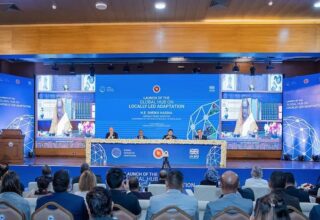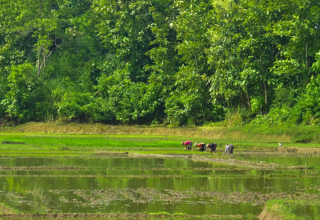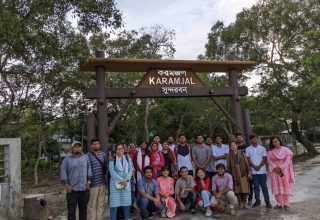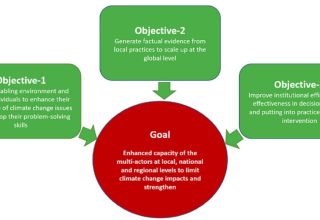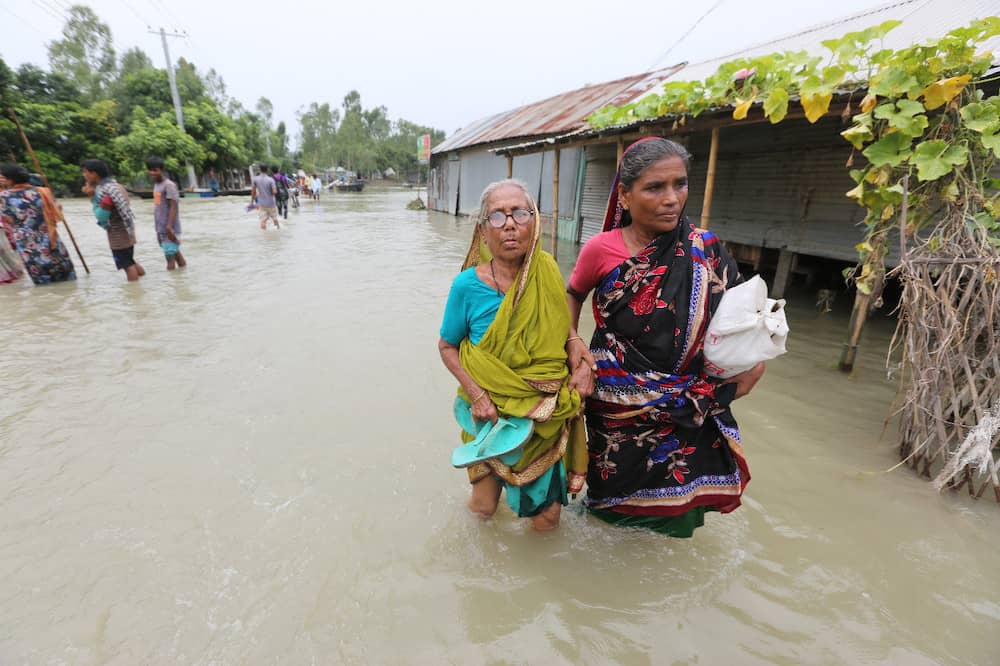
Interventions to address climate adaptation have been a stepping stone to tackling climate change, especially for the least developing countries (LDCs). The current intervention programs aim to build the resilience of local communities to climate shocks, and ultimately their well-being by helping them to better prepare, adapt and recover.
Yet the current evaluation frameworks used in resilience programming often need to adapt to what resilience means in local contexts prior to implementation. This means policy designs are usually at risk of failing to improve the resilience of communities with the goal to avoid unintended negative consequences for communities’ wellbeing. This line of thinking takes us back to Ostrom’s theory on governing the commons. It raises the question – who is truly in charge of controlling the resources, the know-how, and implementation of adaptation measures; Is it for the people by the people or a pre-decided project by donors or governments for the people?
There are many hazy definitions and debates of how we should control measures or the intended outcomes however one thing is certain we can no longer stick to community-led interventions that are not self-sustaining or are not people driven.
When we talk about climate adaptation in the context of Bangladesh it usually revolves around water. And definitely, the water sector can lead as a good example of Locally Led Adaptation examples.
The LLA Principles do not require the funds to be given directly to the vulnerable communities, although that is certainly advisable whenever possible, but rather that the fund providers involve the vulnerable communities in the planning and implementation of the projects and programs.
Institutions like WaterAid which has been working with “small water” compared to institutions working with polders, transboundary issues, or “big water” has years of experience implementing a local level intervention that complements the idea that is “people driven” and certainly have the upper hand in complementing LLA. WaterAid’s methods ensure good governance practices which for decades now have been giving back power to the people – which goes beyond implementing taps and toilets.
For the last couple of years, WaterAid has been using two specific approaches to making the projects self-sustainable after the project period is over. The first approach considers how we assist vulnerable communities. The decision to plan and provide specific WASH services goes beyond just implementing climate resilient infrastructures and technologies. It takes into account the people and what they want and most importantly how they want it.
Secondly, we plan about the post-project period before we implement any interventions. Our interventions have built-in business models that specifically empower vulnerable groups to take accountability for the interventions we want to implement. How are we doing that? We are empowering women groups to become entrepreneurs and run the interventions as they see fit through our expert guidance. WaterAid uses a business model known as the Water Entrepreneurship for Women’s Empowerment (WE-WE) Model which does exactly that. These women are becoming the shot-callers and decision makers, and they use their ideas and business acumen to sustain the projects that the team wants to implement. Starting from community-led savings to using the earnings from our systems to implement businesses they feel are necessary for their communities.
Are Locally led actions the answers we have been looking for? LLA is definitely the missing catalyst climate change practitioners have been waiting for and we are glad it is finally being recognized in mainstream adaptation planning. Hopefully, in the coming decade, Bangladesh can become a country with good business unusual practices and achieve the transformative changes we so direly require in safeguarding the most vulnerable people in the plight of this unprecedented crisis.
Originally this article was published on August 04, 2022 at Dhaka Tribune.
Adnan Qader is working in WaterAid Bangladesh as a Senior Advocacy Officer. His research interest lies in climate change adaptation and water governance.


